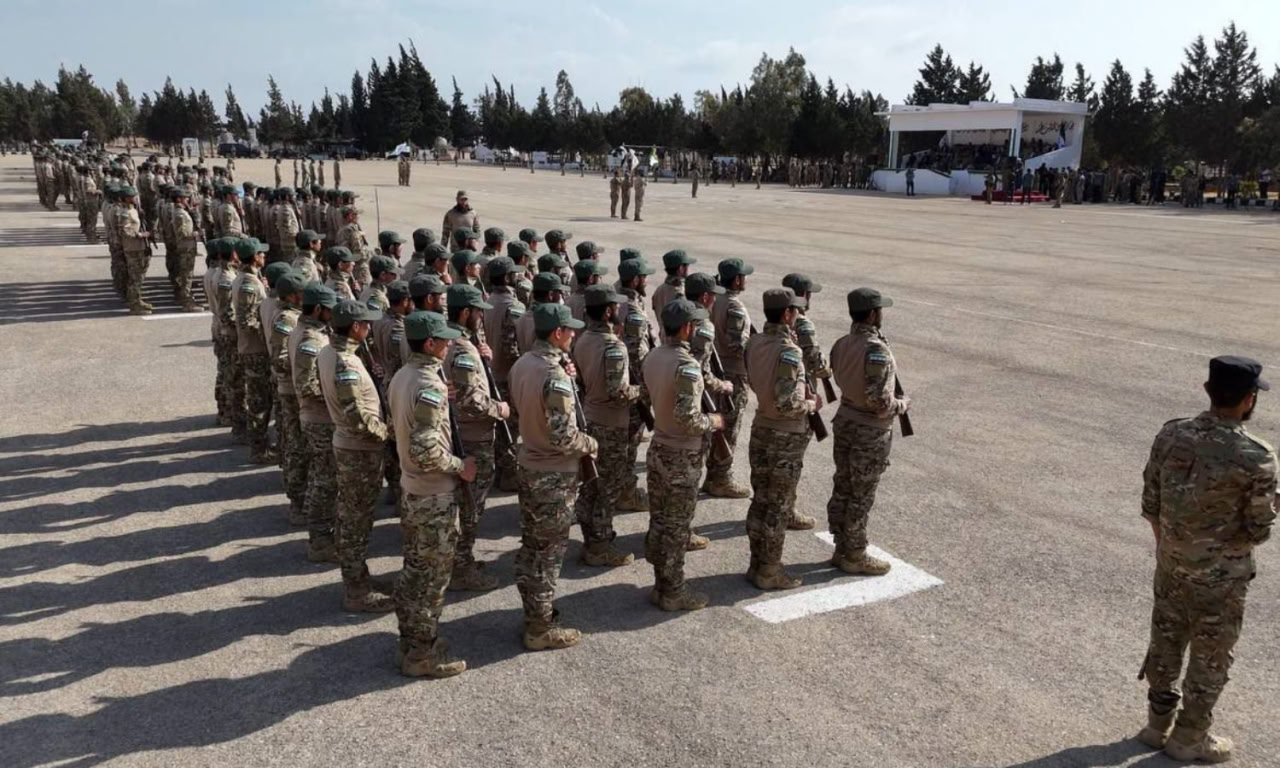
The Syrian Ministry of Defense unveiled a sweeping new Code of Conduct for the nation’s armed forces on Friday, June 30, signaling a bid to institutionalize discipline and restore public trust in a military long used by the Assad regime to repress and abuse the population and associated with authoritarian abuses and human rights violations.
A Military that Respects and Protects
The new document is described by the ministry as a “national military charter,” outlining ethical obligations, binding behavioral rules, and strict prohibitions for all personnel, on and off the battlefield. Officials insist it applies to all who wear the uniform of the New Syrian Army.
Defense Minister Marhaf Abu Qasra called the move essential to rebuilding a professional military. “Military service represents a noble message and a major national responsibility,” he wrote on X. “Because the actions of any member of the armed forces necessarily impact the entire army, it was necessary to prepare a list of duties and prohibitions.”
The charter emphasizes that the military’s role extends beyond combat. Core responsibilities include protecting civilians, defending national sovereignty, and upholding both legal norms and human rights. It asserts that discipline and hierarchy should strengthen, not diminish, a soldier’s respect for society.
Values and Violations
Three central pillars frame the charter: adherence to authentic moral values, unwavering respect for the chain of command, and a belief in the military as a pillar of national unity.
The code defines unacceptable behaviors in clear terms. These include disobeying orders, attacking civilians, damaging property, and engaging in sectarian discrimination. Soldiers are also banned from taking unauthorized photos, making public statements, insulting detainees, and leaking sensitive military information. Any infraction, the ministry claims, will be met with legal consequences.
The Ministry stressed that these guidelines reflect more than moral aspiration. “This is a binding document,” it stated in its release, emphasizing that violations would be referred to judicial authorities under current law.
A Charter Amid Complexity
However, some critics point to ambiguities around enforcement, particularly regarding undisciplined or semi-autonomous factions. Detractors claim while some militias have joined the Ministry’s ranks, they operate nominally under its banner while maintaining separate chains of command and continue to commit abuses.
On May 28, the EU sanctioned several figures affiliated with the Syrian army’s newly formed divisions, including commanders accused of rights violations on the coast earlier this year. Notably, some sanctioned individuals continue to hold leadership roles within the Ministry, causing some to question the reach and sincerity of the reforms.
It is also unclear whether the charter will be applied retroactively to past violations, or will serve primarily as a forward-looking tool aimed at deterring future infractions rather than accountability for past actions.
Still, Abu Qasra insists that the ministry is working to “restore the relationship between the army and the people” and that the new code is a crucial step. Whether it leads to meaningful change—or becomes another symbolic document—may hinge on the Ministry’s ability to confront the established culture and patterns of behavior within military ranks.








